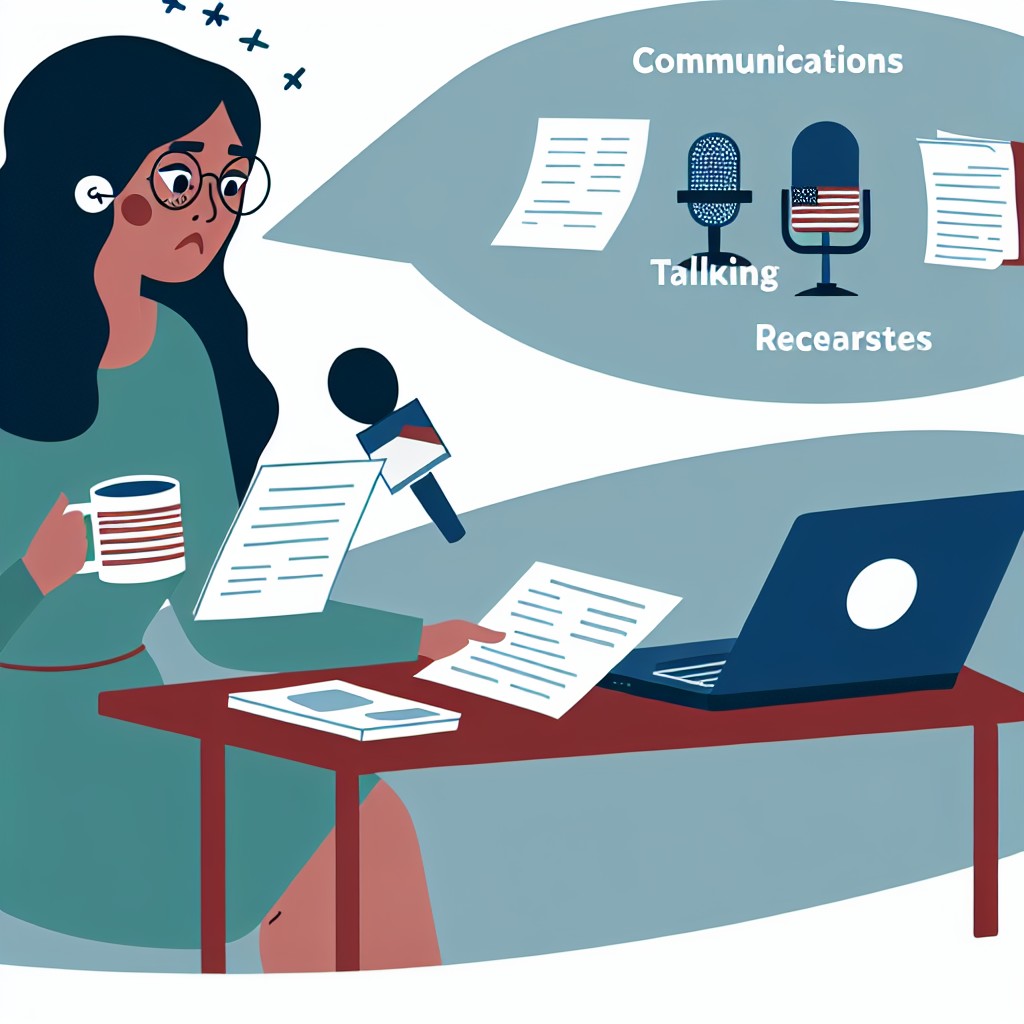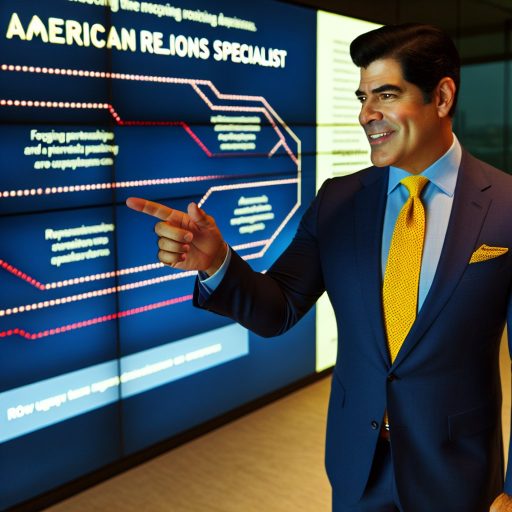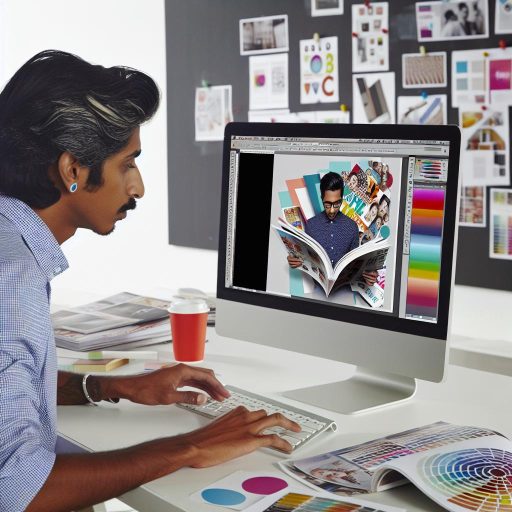Introduction
Media interviews serve as a crucial platform for specialists to share their expertise.
These opportunities allow experts to communicate their knowledge to a wider audience.
By effectively conveying their insights, specialists can enhance their professional reputation and credibility.
In today’s digital age, media coverage can significantly influence public perception.
Specialists risk being misrepresented if they are unprepared.
That exposure can either elevate their standing or damage their credibility based on how they handle interviews.
This blog will cover essential tips to prepare for a media interview.
We will discuss strategies for effective communication and the importance of anticipating questions.
By honing these skills, specialists can present their ideas clearly and confidently.
Additionally, we will explore ways to manage stress and anxiety before an interview.
Understanding how to articulate your expertise can make a significant difference in the outcome.
Specialists often underestimate the power of clarity and precision in their responses.
Moreover, we will emphasize the importance of connecting with the audience.
Specialists should aim to engage listeners, making complex topics accessible and relatable.
This connection fosters trust and establishes the speaker as a thought leader in their field.
Finally, we will touch on the lasting impact of effective interviewing.
Mastering this skill can lead to more invitations, collaborations, and professional growth.
Well-prepared specialists can leverage the media landscape to advance their careers and share valuable insights.
In summary, media interviews represent an important opportunity for specialists to shine.
Preparing thoroughly can transform these moments into stepping stones for career advancement.
Transform Your Career Today
Unlock a personalized career strategy that drives real results. Get tailored advice and a roadmap designed just for you.
Start NowStay tuned for our detailed tips to navigate these interviews successfully.
Understanding the Media Landscape
When preparing for a media interview, understanding the media landscape is crucial.
Various types of media exist today, and each has a unique approach to delivering information.
Recognizing these distinctions can significantly impact how you present yourself and your message.
Different Types of Media
The media landscape comprises multiple platforms, including:
- Print Media: This includes newspapers, magazines, and journals. Print media often provides in-depth coverage and analysis.
- Broadcast Media: Television and radio fall into this category. These formats focus on quick news delivery and visual storytelling.
- Digital Media: This encompasses websites, blogs, social media, and podcasts. Digital platforms allow for real-time interaction and rapid dissemination of information.
Each type of media has distinct characteristics that influence how interviews are conducted and how audiences receive information.
Understanding these nuances can enhance your readiness for any interview setting.
The Role of Journalism in Public Perception
Journalism serves as a vital bridge between information and public perception.
It shapes opinions and influences societal norms.
The following points illustrate how journalism impacts public perception:
- Information Dissemination: Journalists collect and share information with the public, helping them stay informed.
- Public Accountability: Media acts as a watchdog, holding institutions accountable for their actions.
- Framing Issues: Journalists determine how stories are presented, impacting audience understanding and interpretation.
- Shaping Narratives: Media influences how events are perceived, creating specific narratives around individuals and topics.
As a specialist, you must be aware of these dynamics.
Your statements may be interpreted in different ways based on the journalist’s framing and the media outlet’s audience.
Therefore, aligning your messages with your objectives is essential.
Overview of How Interviews Are Conducted in Various Media
The interview process varies across media types, and knowing these differences can lead to successful interactions.
Print Media Interviews
Print interviews usually allow for deeper discussions.
Here are some defining features:
- Interviews often occur in person or over the phone.
- Reporters may ask open-ended questions for comprehensive responses.
- Quotes may be taken directly, allowing for precise communication.
- Follow-up questions can delve deeper into subjects raised.
In print media, clarity and depth are vital.
Ambiguities can lead to misinterpretation, highlighting the importance of solid messaging.
Broadcast Media Interviews
Broadcast interviews differ significantly due to their visual and auditory elements.
Key characteristics include:
Transform Your Career Today
Unlock a personalized career strategy that drives real results. Get tailored advice and a roadmap designed just for you.
Start Now- Interviews are typically shorter, requiring concise answers.
- Television interviews often include visual elements, such as infographics.
- Body language and vocal tone play critical roles in communication.
- Interviews usually occur live or in real-time, relying on quick thinking.
In broadcast media, staying on point and engaging the audience quickly is crucial.
Your ability to communicate effectively within tight time limits can define the interview’s success.
Digital Media Interviews
Digital media interviews present unique opportunities and challenges.
Some notable aspects include:
- Interviews can happen via video calls, podcasts, or social media platforms.
- Engagement may take place in real-time, allowing for audience interaction.
- Content can be shared and reshared rapidly, increasing visibility.
- Interviews may be edited before publication, allowing for polish but altering context.
In a digital landscape, engagement and authenticity are paramount.
Transparency helps build trust with your audience, enhancing your credibility.
Preparing for Your Interview Across Media Types
Regardless of the media type, robust preparation can make a difference.
Consider these steps when preparing for interviews:
1. Research the Media Outlet
Understand the outlet’s audience, style, and previous coverage of similar topics.
Tailoring your message to align with their focus can enhance your effectiveness.
2. Know Your Audience
Recognize who will be consuming your message.
Different audiences have varying expectations.
Adapt your tone and content accordingly.
3. Develop Key Messages
Identify three to five core messages you want to communicate.
Use these messages as guiding points throughout the interview.
Reiterate them to emphasize important points.
4. Practice Mock Interviews
Simulate the interview environment with a colleague or friend.
This practice can enhance your confidence and improve your delivery.
Focus on possible questions and how to respond clearly.
5. Prepare for Tough Questions
Anticipate challenging inquiries and plan your responses.
Transform Your Career Today
Unlock a personalized career strategy that drives real results. Get tailored advice and a roadmap designed just for you.
Start NowStaying calm and composed under pressure will demonstrate expertise and credibility.
6. Stay On Message
During the interview, steer the conversation back to your key messages.
If you steer too far off course, gently redirect the discussion to your main points.
7. Follow Up
After the interview, consider sending a thank-you note.
Expressing appreciation can build rapport with journalists and foster future opportunities.
By mastering the complexities of the media landscape, specialists can significantly enhance their interview performances.
Embrace the preparation process, and focus on clear communication.
Understanding the nuances of various media types will empower you to present your expertise effectively.
Effective interviews can lead to greater influence and visibility, shaping public perception positively.
When preparing for a media interview, one critical aspect to consider is identifying your audience.
Understanding who will receive your message shapes your communication strategy.
It transforms your interview from a generic presentation into a tailor-made experience that resonates with your listeners.
Here’s how you can effectively identify your audience and optimize your message.
Importance of Knowing the Audience Being Reached
Knowing your audience is essential for several reasons:
- Engagement: A well-targeted message captures attention.
- Relevance: Understanding your audience allows you to present information that resonates.
- Appropriateness: Tailoring your language and tone improves the connection with your audience.
- Influence: Addressing specific needs and concerns can position you as a trusted expert.
- Action: A well-crafted message inspires your audience to take action.
Tailoring Your Message for Different Demographics
Different demographics require you to adapt your message in precise ways.
Here’s how to tailor your approach:
- Age: Different age groups respond to varying vocabulary and references.
- Interest Level: Assess the baseline knowledge of your audience.
- Geographic Location: Language and references can differ by region.
- Professional Background: Ensure your message aligns with the audience’s professional experience.
- Values and Beliefs: Understand the values that guide your audience’s decision-making.
Researching the Media Outlet’s Typical Audience
Effective audience identification starts with research about the media outlet distributing your message.
Here are practical steps to help you understand the outlet’s typical audience:
- Analyze Audience Surveys: Many media outlets share demographic information.
- Explore Social Media: Check the outlet’s social media profiles.
- Look at Past Content: Review previous interviews and articles.
- Ask Peers: Fellow experts may have insights on the media outlet’s audience.
- Understand Format and Style: Each outlet has a unique style.
Once you gather insights from these steps, you can create a comprehensive picture of the outlet’s audience.
This understanding allows you to craft a message that resonates and succeeds with your listeners.
Transform Your Career Today
Unlock a personalized career strategy that drives real results. Get tailored advice and a roadmap designed just for you.
Start NowImplementing Your Insights
After identifying your audience and tailoring your message, you must implement these insights effectively:
- Use Relevant Examples: Illustrate your points with relatable anecdotes.
- Adjust Your Word Choice: Use language that the audience understands.
- Practice Active Listening: During the interview, listen carefully to interviewer questions.
- Invite Interaction: Make your interview conversational.
- Solicit Feedback: After the interview, seek post-interview feedback.
Maximizing Your Interview Impact
Identifying your audience is a fundamental aspect of preparing for a media interview.
It can significantly amplify your message’s impact.
By understanding your audience, you can craft a tailored message that captivates.
As you aim to share your expertise, remember that effective communication goes beyond mere words.
It involves engagement, relevance, and respect.
Invest the necessary time into research before your interview.
Assess your strategies and adapt as needed.
Ultimately, the goal remains the same: communicate clearly and leave a lasting impression.
You Might Also Like: Essential Steps to Become a Celebrity Publicist
Importance of Core Messaging
Preparing for a media interview requires clarity and focus.
Core messaging provides guidance for specialists.
Your audience needs to understand your points.
Effective messaging builds trust and credibility.
Without clear messaging, you risk being misquoted or misunderstood.
Below are reasons why core messaging is essential:
- Establishes Consistency: Core messages ensure consistency across various interviews.
- Enhances Retention: Concise messages are easier for audiences to remember.
- Builds Authority: Confidently articulated messages position you as an expert.
- Guides the Conversation: Key messages steer the interview in a desired direction.
- Reduces Anxiety: Having prepared messages alleviates stress during interviews.
Tips on Creating Concise and Impactful Statements
Crafting effective key messages requires strategic thinking.
Here are practical tips to help you create statements that resonate:
Transform Your Career Today
Unlock a personalized career strategy that drives real results. Get tailored advice and a roadmap designed just for you.
Start Now- Identify Your Objectives: Know what you want the audience to take away. Set clear goals for your interview.
- Use Simple Language: Avoid jargon and complex terminology. Keep language accessible to engage a wider audience.
- Stick to One Idea: Each message should focus on a single main idea. This approach prevents confusion.
- Make it Relevant: Tailor your messages to the audience’s interests. Relatability enhances engagement and retention.
- Be Authentic: Use a tone and style that reflects your personality. Genuine communication resonates well.
- Practice Brevity: Aim for clarity and conciseness. A statement should ideally be no longer than a couple of sentences.
- Support with Evidence: Wherever possible, back up your messages with relevant data or anecdotes. This boosts your credibility.
- Employ Active Voice: Use active rather than passive voice. This keeps statements dynamic and engaging.
Examples of Effective Key Messages
To illustrate how to create impactful key messages, consider the following examples across various fields:
- Healthcare: “Early detection saves lives. Routine screenings can identify health issues before they escalate.”
- Technology: “Innovation drives progress. Investing in technology enables businesses to enhance efficiency and productivity.”
- Environment: “Sustainability is not an option; it is a necessity. Individual actions lead to collective change.”
- Education: “Quality education empowers individuals. Lifelong learning is essential for success in today’s world.”
- Finance: “Smart investing builds wealth. Diversifying your portfolio reduces risk.”
These examples showcase how to convey important messages succinctly.
Note their clear focus and accessible language.
The Role of Rehearsal
After crafting your key messages, practice is vital.
Rehearsing helps you internalize the content.
Speaking aloud solidifies your confidence.
Practicing in front of a mirror improves your delivery.
Consider the following rehearsal techniques:
- Record Yourself: Listening to recordings helps identify areas of improvement.
- Engage an Audience: Practice in front of friends or colleagues for constructive feedback.
- Simulate Real Interviews: Conduct mock interviews to mimic the pressure of a real media setting.
- Time Yourself: Ensure your key messages fit within a reasonable timeframe.
Responding to Questions
Media interviews often involve questions.
Prepare to answer with poise and confidence.
Employ the following strategies:
- Listen Actively: Pay close attention to questions before responding.
- Be Honest: If unsure about an answer, it’s okay to admit it. Offer to follow up later.
- Return to Key Messages: If a question strays from your core topics, steer the conversation back.
- Keep Calm: Take a moment to collect your thoughts before responding.
Handling Difficult Questions
Sometimes, difficult questions arise.
Handling them effectively reflects your professionalism.
Here are ways to navigate tough questions:
- Stay Composed: Maintain a calm demeanor, regardless of the question’s nature.
- Acknowledge Concerns: Validate the question before addressing it. This fosters a connection with the interviewer.
- Provide Context: If the question relates to sensitive topics, explain the background thoughtfully.
- End on a Positive Note: Finish your response with a hopeful or constructive outlook.
In summary, preparing key messages is crucial for a successful media interview.
Clarity, conciseness, and relevance enhance your communication.
Transform Your Career Today
Unlock a personalized career strategy that drives real results. Get tailored advice and a roadmap designed just for you.
Start NowBy practicing and refining your statements, you can build confidence.
Every media interaction is an opportunity to portray expertise and authority.
Approach each interview with preparation and a clear message, and you will leave a lasting impression.
Delve into the Subject: The Future of Remote Copy Editing Jobs
Commonly Asked Questions for Specialists in Various Fields
Every media interview presents an opportunity to showcase your expertise.
Specialists in fields such as technology, medicine, finance, and education will encounter similar questions.
Here are some commonly asked questions categorized by field:
-
Technology:
- What are the latest trends in your field?
- How do you see technology evolving in the next few years?
- What challenges do you face as a specialist?
- What are the latest trends in your field?
-
Medicine:
- What are the most significant advancements in your specialization?
- How do you handle patient privacy in your practice?
- What advice would you give to patients regarding new treatments?
- What are the most significant advancements in your specialization?
-
Finance:
- What are the most pressing issues facing investors today?
- How do market trends impact your recommendations?
- What strategies do you advise for long-term financial planning?
- What are the most pressing issues facing investors today?
-
Education:
- What innovations are changing the education sector?
- How can teachers adapt to new technologies in the classroom?
- What skills do you believe are essential for future generations?
- What innovations are changing the education sector?
Techniques for Brainstorming Potential Queries
To prepare effectively, you must anticipate the questions interviewers may ask.
Here are techniques to brainstorm potential queries:
-
Research Your Field:
Identify current issues and controversies within your area of expertise.
Analyze popular articles or trending topics for inspiration.
Explore forums and social media discussions to gauge public interest.
-
Consult Colleagues:
Engage fellow specialists to understand what questions they frequently encounter.
Sharing experiences allows you to gain diverse perspectives.
-
Use the STAR Method:
Reflect on your past experiences and formulate questions based on the Situation, Task, Action, and Result.
This method helps clarify your thought process and achievements.
-
Practice Mock Interviews:
Simulate interview scenarios with friends or mentors.
Provide each other with potential questions.
This exercise builds confidence and smoothens your responses.
-
Analyze Previous Interviews:
Watch or read transcripts of other specialists’ interviews.
Note the questions they receive and the effectiveness of their answers.
Strategies for Handling Difficult or Unexpected Questions
During an interview, some questions may catch you off guard.
Efficient strategies can help you navigate these challenges with grace:
-
Pause Before Responding:
Take a moment to gather your thoughts.
A brief pause signals contemplation and helps avoid impulsive reactions.
-
Stay Calm and Composed:
Maintain a calm demeanor even if the question feels tough.
Show professionalism by keeping your tone neutral and respectful.
-
Clarify the Question:
If you don’t understand a question, don’t hesitate to ask for clarification.
Phrasing like “Could you elaborate on that?” can provide valuable context.
-
Reframe the Question:
Instead of directly answering a challenging question, reframe it.
Shape your response around a related topic where you feel more comfortable.
-
Use It as a Learning Opportunity:
If faced with a topic you lack information on, acknowledge your knowledge limits.
Follow up with a commitment to learn and address the query later.
-
Bridge Back to Your Key Messages:
Utilize every question as an opportunity to highlight your expertise.
Transition to key messages you want to convey.
Delve into the Subject: Print Production Manager: Industry Insights
Practice and Rehearsal
Preparation is key when it comes to media interviews.
Practicing beforehand helps you refine your message and boosts your confidence.
You’ll demonstrate expertise and eloquence without the pressure of an audience watching.
This section covers the importance of practice, techniques for effective rehearsal, and tips for managing nerves.
Importance of Practicing Before the Interview
Practicing before a media interview provides numerous benefits.
First, rehearsing encourages familiarity with your material.
This way, you confidently express your thoughts during the actual interview.
Secondly, practice helps you anticipate possible questions and prepare thoughtful responses.
Transform Your Career Today
Unlock a personalized career strategy that drives real results. Get tailored advice and a roadmap designed just for you.
Start NowYou can ensure your answers align with your key messages.
Additionally, rehearsing builds your comfort level with media interactions.
Media interviews often feel daunting, especially for specialists.
However, consistent practice transforms anxiety into confidence.
Lastly, practicing sharpens your presentation skills.
You learn how to articulate ideas clearly and concisely.
Strong communication skills enhance your credibility in the eyes of both the media and the audience.
Techniques for Effective Rehearsal
To ensure effective rehearsal, consider the following techniques:
- Mock Interviews: Organize mock interviews with colleagues or friends.
- Video Recording: Record your responses while practicing.
- Use Mirror Practice: Practice in front of a mirror.
- Prepare Elevator Pitches: Develop concise and impactful elevator pitches.
- Feedback Loop: After mock interviews, gather feedback.
Tips for Managing Nerves and Building Confidence
Nerves can hinder performance during interviews.
However, you can manage anxiety effectively.
Follow these tips to instill confidence:
- Visualize Success: Before the interview, visualize yourself performing successfully.
- Practice Deep Breathing: Practice deep breathing or mindfulness techniques.
- Stay Informed: Familiarize yourself with current trends in your field.
- Know Your Audience: Understand the media outlet’s audience.
- Prepare for Difficult Questions: Anticipate tough questions and plan your responses.
- Limit Caffeine Intake: Avoid excessive caffeine before the interview.
- Dress Comfortably: Choose an outfit that makes you feel confident.
- Accept Imperfection: Embrace the possibility of mistakes.
Preparation for Media Interviews
Practicing for a media interview not only builds your confidence but also enhances your credibility.
By employing effective rehearsal techniques, you prepare to engage with your audience meaningfully.
Managing nerves before the interview is equally crucial for a successful performance.
As you plan your preparation strategy, include these techniques and tips to ensure your interview experience is smooth and productive.
Ultimately, your expertise deserves a platform.
By investing time into practice and rehearsal, you set the stage for success.
Embrace the opportunity to share your knowledge with the world.
Remember, preparation is the foundation of a successful media interview.
Uncover the Details: Educational Pathways for Corporate Communications Careers
Transform Your Career Today
Unlock a personalized career strategy that drives real results. Get tailored advice and a roadmap designed just for you.
Start Now
On the Day of the Interview
Preparing for the big day is essential for a successful media interview.
Your approach can set the tone for the entire interaction.
Let’s explore best practices regarding appearance, body language, punctuality, preparation, and maintaining calmness during the interview.
Best Practices for Appearance and Body Language
Your appearance communicates a lot before you even speak.
Therefore, dressing appropriately becomes critical.
Here are several practices to consider:
- Choose Professional Attire: Opt for clothing that reflects the professionalism of your field. Tailored suits work well for corporate environments, while smart-casual outfits may suit creative professions.
- Pay Attention to Grooming: Ensure your hair is clean and styled. Maintain a neat appearance, as personal grooming impacts first impressions.
- Select Suitable Colors: Wear solid colors that complement your skin tone. Avoid overly bright or distracting patterns that may take attention away from your message.
- Be Mindful of Accessories: Limit jewelry and excessive accessories. Choose pieces that enhance your outfit without becoming a focal point.
- Practice Positive Body Language: Stand tall, maintain an open posture, and use appropriate hand gestures. Smiling can help convey warmth and confidence.
- Make Eye Contact: Establish and maintain eye contact throughout the interview. This builds trust and shows engagement.
Your non-verbal communication can enhance or detract from your message.
By presenting yourself well, you invite respect and attention from your audience.
Importance of Being Punctual and Prepared with Necessary Materials
Punctuality shows respect and professionalism.
Arrive at the interview location in advance.
Here are tips for maintaining punctuality and preparation:
- Map Out Your Route: Know exactly how to get to the interview location. Check for parking availability, public transport, or travel delays.
- Set an Alarm: Use multiple alarms if necessary to ensure you wake up early. This helps you build a buffer for unexpected delays.
- Prepare Your Materials: Bring essential documents, including your resume, portfolio, and notes. If applicable, have copies of your press releases or relevant articles.
- Double-Check Technology: If the interview occurs via video, test your equipment beforehand. Ensure your camera, microphone, and internet connection work properly.
- Practice Your Speech: Rehearse answers to anticipated questions aloud. This builds confidence and helps solidify your points.
Punctuality allows you to settle in, reducing potential anxiety.
Prepared materials ensure you look competent and professional, reflecting well on your expertise.
Tips for Staying Calm and Focused During the Interview
Staying calm and focused is crucial for a successful media interview.
When nerves kick in, these strategies can help:
- Practice Mindfulness: Take deep breaths before entering the interview room. Clear your mind for a moment to center your thoughts.
- Visualize Success: Picture yourself successfully answering questions. This mental rehearsal can significantly boost your confidence.
- Stay Hydrated: Drink water before the interview to stay alert. Avoid excessive caffeine, which might increase anxiety.
- Understand the Format: Familiarize yourself with the interview’s structure. Knowing whether it will be a panel or one-on-one can help you psychologically prepare.
- Focus on the Message: Remember the key points you want to convey. Concentrating on your message shifts the focus away from anxiety.
- Don’t Rush Your Answers: Take your time to respond thoughtfully. You can pause briefly to gather your thoughts before answering a challenging question.
- Maintain a Positive Attitude: Remind yourself that it’s a conversation, not an interrogation. The interviewer is interested in your perspective and insights.
By cultivating a calm and focused mindset, you’ll perform better and present your ideas more clearly.
The day of the interview offers an opportunity to showcase your expertise and professionalism.
By carefully considering your appearance, punctuality, and mental state, you’ll step into the interview with confidence and poise.
Employ these tips to maximize your chances for a successful outcome.
Transform Your Career Today
Unlock a personalized career strategy that drives real results. Get tailored advice and a roadmap designed just for you.
Start NowWith thorough preparation, you can transform potential anxiety into a captivating, engaging discussion that resonates with your audience.
Post-Interview Follow-Up
After a media interview, the work isn’t finished.
Your actions after the interview can greatly influence your professional reputation and future possibilities.
This section will explore the necessary steps for effective follow-up.
Importance of Thanking the Interviewer
Expressing gratitude following an interview is crucial.
A simple thank-you note demonstrates professionalism.
Moreover, it shows respect for the interviewer’s time and effort.
Here are some reasons to prioritize this gesture:
- Builds Relationships: Thanking the interviewer opens the door to future communications, establishing rapport.
- Reinforces Interest: A thank-you note reaffirms your enthusiasm for the opportunity.
- Positions You Favorably: Thoughtfulness sets you apart from other candidates.
- Clarifies Key Points: This is a chance to reiterate important aspects of your expertise.
- Offers Additional Insights: Share any information or examples that you didn’t cover during the interview.
When composing your thank-you note, keep a few best practices in mind:
- Timing: Send the note within 24 hours of the interview.
- Personalization: Refer to specific topics discussed during the interview to make it memorable.
- Format: Depending on the company culture, choose between a handwritten note or a digital email.
How to Leverage the Interview for Future Opportunities
Every interview is not just a chance to win a job.
It serves as a platform for future possibilities.
Even if you don’t get the position, opportunities can arise from it.
Here’s how you can maximize your interview experience:
- Networking: Connect with the interviewer on LinkedIn. This expands your professional circle.
- Seek Feedback: If appropriate, ask for feedback. This helps improve your interview skills.
- Follow Industry Trends: Keep in touch with the organization’s developments. Engagement shows continued interest.
- Stay Active: Share relevant content on social media. This keeps you visible within your network.
- Refer to the Interview: Mention the discussion in future conversations. This reinforces your connection.
By positioning yourself as a knowledgeable professional in your field, you stay memorable.
Enhancing your reputation now pays dividends down the line.
Strategies for Monitoring the Interview’s Impact on Your Professional Presence
Your professional presence can shift significantly after a media interview.
Monitoring this impact is vital for maintaining a strong image.
Here are some effective strategies to consider:
- Track Social Media Engagement: Measure likes, shares, and comments on posts about the interview. High engagement indicates a positive impact.
- Google Yourself: Regularly search your name to see how the interview is being discussed online. This helps you stay informed about your reputation.
- Network Feedback: Speak to colleagues and professionals about their perceptions. Gathering insights aids in understanding your standing.
- Monitor Media Mentions: Use Google Alerts to track articles or references about your interview. This keeps you updated on how others view your contribution.
- Request Objective Reviews: Consider asking mentors for a candid review of your performance. Their feedback is invaluable for growth.
Implementing a consistent follow-up strategy meshes seamlessly with diligent monitoring.
This proactive approach prepares you for forthcoming interviews and media opportunities.
Transform Your Career Today
Unlock a personalized career strategy that drives real results. Get tailored advice and a roadmap designed just for you.
Start NowEffective post-interview follow-up encompasses expressing gratitude, leveraging the experience, and monitoring your professional presence.
Each of these steps contributes not only to your immediate success but also to your long-term career growth.
Remember, an interview marks the beginning of ongoing professional relationships, not just a one-time encounter.
Preparing for a Media Interview
Start by understanding your audience and the context of the interview.
Anticipate questions and develop clear, concise answers.
Prepare key messages that reflect your expertise while remaining relatable.
Practice mock interviews to build confidence and improve your delivery.
Focus on body language and tone to engage your audience effectively.
Additionally, dress appropriately to make a positive first impression.
As you embrace media opportunities, remember the value they offer.
Each interview serves as a platform to share your knowledge and connect with a broader audience.
Seize these chances to promote your work and establish your authority in your field.
Finally, recognize the long-term benefits of effective media interviews.
Building a strong media presence enhances your credibility and visibility.
Over time, this can lead to more speaking engagements, collaborations, and career opportunities.
Stay open to learning from each experience and refine your skills continuously.
With practice, you can master the art of media interviews.
Your insights can spark meaningful conversations and influence public opinion.
Additional Resources
Public Relations Specialists : Occupational Outlook Handbook …
How to Work With the Media: Interview Preparation for the …
Transform Your Career Today
Unlock a personalized career strategy that drives real results. Get tailored advice and a roadmap designed just for you.
Start Now



